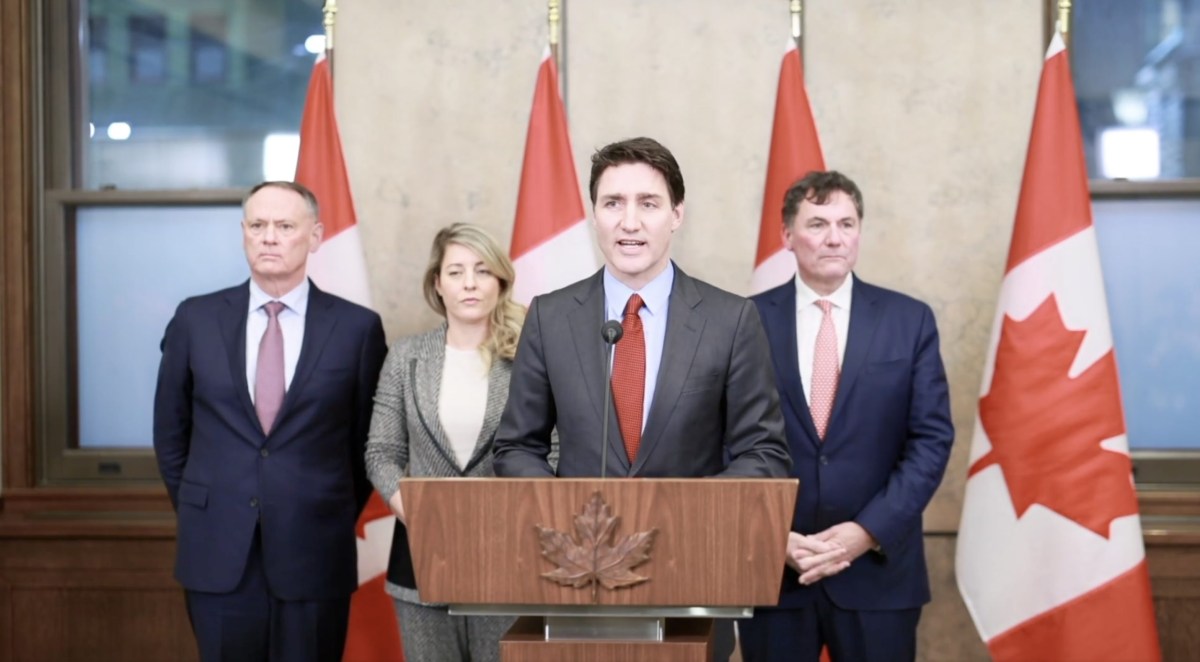TAMPA, Fla. — The leaders of Canada’s most populous province are holding off on a threat to scrap a $68 million Starlink contract for remote satellite connectivity this summer, after U.S. President Donald Trump delayed planned tariffs on the country by at least 30 days.“With the U.S. pausing tariffs, Ontario will also pause our retaliatory measures,” Ontario Premier Doug Ford said Feb. 3 on X, the social media platform controlled by Elon Musk, CEO of U.S.-based Starlink’s parent company, SpaceX.Ford said Ontario is also tentatively pausing a ban on U.S. companies from provincial contracts, a threat he made earlier in the day as a 25% tariff on most Canadian imports was set to take effect Feb. 4. Oil would have been subject to a lower 10% surcharge.Canadian Prime Minister Justin Trudeau had also outlined plans over the weekend to impose about $107 billion in retaliatory tariffs on U.S. goods.Once imposed, Trump has said that tariffs on Canada, similar to those recently postponed a month for Mexico, would remain in place until further action is taken to curb illegal migration and fentanyl smuggling. The U.S. is also increasing tariffs on China by 10%.Following a call with Trump Feb. 3, Trudeau said Canada would make new commitments, including forming a Canada-U.S. Joint Strike Force to combat organized crime, fentanyl trafficking and money laundering.Meanwhile, alongside proposed tariffs on the European Union, Trump’s broader trade strategy has raised questions about its near-term impact on the cost and availability of materials for the U.S. space industry.SpaceX did not respond to a request for comment.Satellite connectivity in negotiation Ontario’s government awarded the Starlink contract in November, covering 15,000 unserved and underserved homes and businesses, as part of its plan to ensure every community in the province has internet access by the end of 2025.Low Earth orbit (LEO) broadband operator Starlink was one of two shortlisted bidders for the Ontario Satellite Internet (ONSAT) program, ultimately beating Canada-based internet service provider Xplore, a rural connectivity specialist that underwent a restructuring process last year to refinance debt with new investors.Xplore uses satellite capacity from geostationary operators, including Canada’s Telesat and U.S.-based EchoStar, in addition to fiber and wireless technologies, to connect rural communities.A OneWeb spokesperson said the British LEO subsidiary of French fleet operator Eutelsat did not bid for ONSAT but did not elaborate.In May 2021, Ottawa, Ontario-based Rock Networks became the first Canadian company to announce a distribution agreement for OneWeb’s satellite capacity, aiming to improve connectivity across remote regions.Ottawa-based Telesat currently operates a geostationary fleet but plans to start deploying broadband satellites next year for its LEO constellation Lightspeed. The Canadian government is funding more than half of Lightspeed’s $3.5 billion cost.
By Tyler Mitchell
Tyler is a renowned journalist with years of experience covering a wide range of topics including politics, entertainment, and technology. His insightful analysis and compelling storytelling have made him a trusted source for breaking news and expert commentary.
